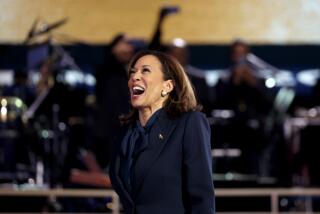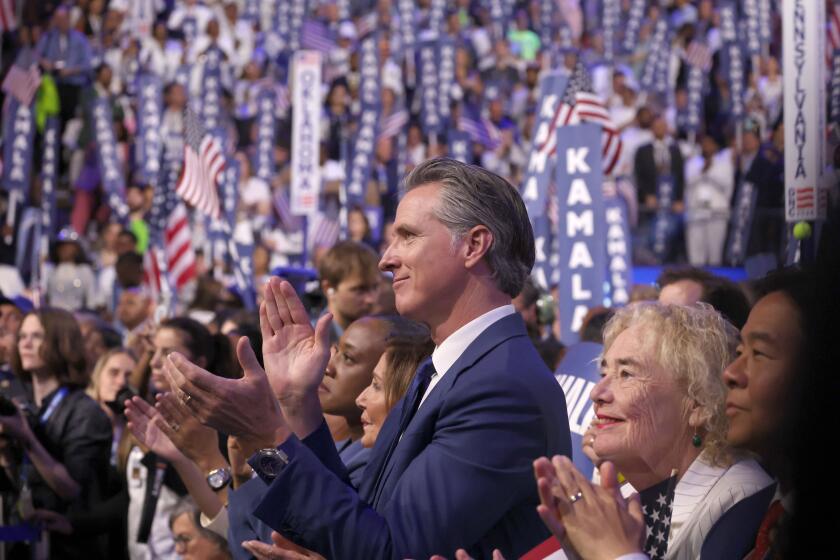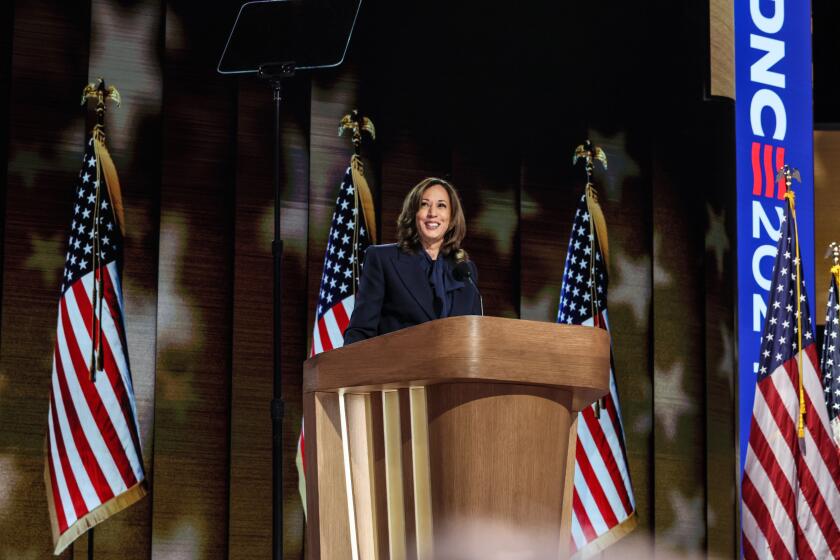Ideas? Debate? In Politics?
While California may be snarled now in a unique and tragicomic recall, it’s always had one thing in political common with the rest of the nation: a reliance on ad hominem attacks. Whether it was Gov. Gray Davis driving former Mayor Richard Riordan out of the Republican primary in 2002 with attack ads or George W. Bush operatives allegedly smearing John McCain’s patriotism in the 2000 presidential contest, negative campaigning has become a hallmark of politics.
But something strange is happening in this year’s Democratic presidential primary. A substantive debate is erupting. The party appears to be headed for one of those rare identity crises that can reshape it for decades. A political party last was transformed when Barry Goldwater’s forces started purging moderates after the 1964 Republican convention, turning the GOP into a truly conservative party.
The current fisticuffs amount to a battle over the legacy of President Clinton and Vice President Al Gore. On one side is the insurgent campaign of Howard Dean, the former Vermont governor, and, to a lesser extent, the run by Sen. John F. Kerry (D-Mass). As Jimmy Carter did in 1976, Dean portrays himself as an outsider battling the Washington establishment. When Dean says he represents the “Democratic wing of the Democratic Party,” he repudiates Clinton’s insistence on co-opting Republican stands on welfare and other issues. Meanwhile, Kerry has made plain his ambivalence about the Iraq war, in contrast to hawks like Sen. Joe Lieberman (D-Conn.).
To Lieberman and other members of the centrist Democratic Leadership Council -- which helped launch Clinton-Gore -- Dean’s message is “a ticket to nowhere.” The party, they argue, must avoid moving to the left on taxes or trade if it is to appeal to moderate swing voters, just as Clinton-Gore did.
It isn’t just Dean who has party centrists fretting. How about Rep. Richard A. Gephardt (D-Mo.), who has not only proposed a $2-billion health plan but also continues to attack free trade?
At an AFL-CIO forum on Tuesday, Gephardt declared: “I am the one who not only voted against but led the fight against” the North American Free Trade Agreement and trade liberalization or accords with China, Singapore and Chile. Yet free trade, as Lieberman pointed out, was at the heart of Clinton’s economic program.
Far from seeing it as a source of consternation, party elders should welcome the debate. Doctrinal battles invigorate parties. And the more the Democrats battle over ideas, the less time they’ll waste on personal attacks.
More to Read
Get the L.A. Times Politics newsletter
Deeply reported insights into legislation, politics and policy from Sacramento, Washington and beyond. In your inbox three times per week.
You may occasionally receive promotional content from the Los Angeles Times.






